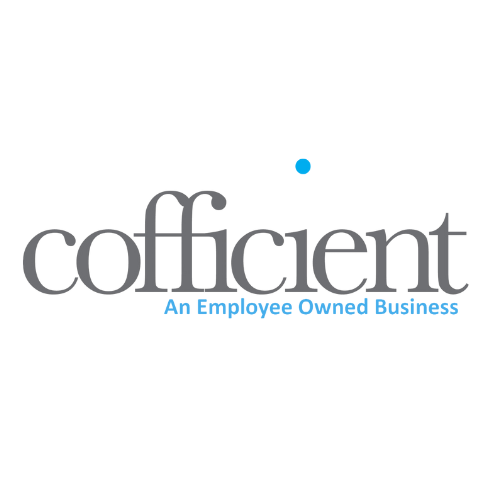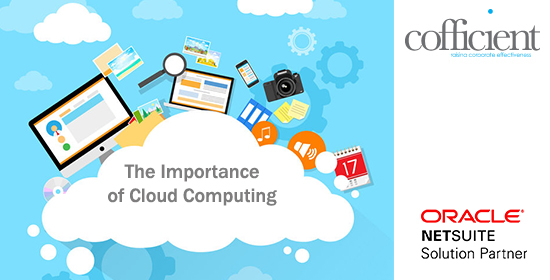
Why Cloud Works for Small Businesses
Why Cloud Works for Small Businesses
Cloud based business software systems are becoming increasingly popular. Without a doubt, it’s the modern way to consume your business system.
But despite the obvious benefits of cloud software, the take-up has still been slower than expected.
There are some misconceptions about cloud which still prevail; particularly pertaining to security and costs.
For smaller businesses, fear of these perceived risks, can cause reluctance to go down the Software as a Service (SaaS) route. Instead, many SMB owners will favour the more traditional on-premise option.
It’s one thing to ask small business owners to challenge their perceptions, but in all honesty, there is no smoke without fire. So let’s examine the root of the misconceptions and determine where the truth actually lies.
Misconception #1 – on premise is cheaper
Truth – Licenses for the on premise software are cheaper but total cost of ownership over a period of time favours software as a service.
Year one costs for purchase and installation of software will be very similar whether you are buying cloud or on-premise.
It’s true that license prices are typically cheaper for on-premise software licenses. This is because you buy them as a “one off”. By comparison, cloud software licenses (SaaS/cloud) carry an ongoing recurring annual cost.
Remember that, it takes more than just a license to get your on-premise up and running.
It’s vital to examine the total cost of ownership (TCO) of on-premise, to working out your final price.
Typically, year one costs for cloud and on-premise will be very similar. But the cost benefits will be felt over a longer period of time.
It’s the software equivalent of fitting double glazing. The benefits are felt over time as your heating bill reduces.
Analysis by SMB Group (2013) found the following:

Clearly, over 4 years, the license cost of cloud is more than double that of on-premise, but since the hosting and IT infrastructure are taken care of by your cloud software vendor, those are costs you don’t have to absorb. Add to that the rapid time to deployment for cloud software and any savings you might make on consulting, cloud begins to look more appealing.
Misconception #2- On-premise is a safer way to store my data
Truth – Cloud software companies stake their entire business reputation and profit on being able to keep your data safe.
The misconception that your data is less secure if hosted in the cloud is finally beginning to fall away.
It comes from a somewhat irrational fear that data hosted off site is somehow less safe than data which sits in a server in the corner of your office.
It’s the software equivalent of hiding your money under your mattress for fear of having your bank card stolen.
Firstly, your data is at risk of security breaches in your own office as anywhere. As many as 43% of cyber attacks target small businesses (Symantec’s 2016 Internet Security Threat Report). Secondly, a cyber attack may not always occur externally. A small business may also find itself at the mercy of a disgruntled employee who may want to delete a database or copy data to take to another role. When your business continuity and back up strategy sits with your IT department, you need to make sure you are all over it to avoid this risk.
Contrast that to cloud hosted software. It isn’t necessarily true to say that data stored in the cloud carried zero risk by comparison to on-premise, however, cloud software vendors entire reputation and business success is based upon keeping your data safe. If their data centres suffer any breaches they will pay handsomely both through reputation and lost business. With this in mind they have funneled large sums of money into cyber security and data encryption which protects your data, but also, crucially protects their own business.
Indeed, this forms part of the annual license cost of cloud software pay: your ongoing recurring license revenue helps to pay for the tenancy and the security for all whose date is held in the vendors’ data centres.
The question would be this: Are you, as a small business owner, able to apply the same business continuity, security and back up technology that these multi billion turn over businesses can apply on your behalf?
It’s the software equivalent of hiding your money under your mattress for fear of having your bank card stolen. Your house may not be broken into – but I rather fancy the safety and reassurances offered by a high security bank than my own burglar alarm.
Misconception #3 – On Premise is more reliable
Truth – Cloud typically has 99.98% up-time.
It’s true that a number of British SMEs are overwhelmingly unsatisfied with broadband quality and reliability. A recent survey by FarrPoint suggests that just under half of small business owners were dissatisfied with their broadband service.
That issue isn’t related to the reliability of the cloud software thought. Cloud software vendors typically publish their up-time, which reliably sits at circa 99.98% up-time. The unreliability sits with broadband services.
But aren’t the two linked?
Well, yes, but……this is the software equivalent of refusing to purchase a car because of the poor condition of the roads. Sure, you can still get to where you want to go….. but it will take you a lot longer to get there.
Taking cloud based software out of the equation for the time being, what else would your business struggle to achieve without a reliable internet connection? Business banking, running and maintaining your website, accessing crucial business tools like email and social media all become a struggle. It’s imperative, cloud software or not, that you have a reliable connection. The onus is on the broadband providers to provide the service. And if they don’t? Well, the onus is on the business owners to find a better service.
Service is improving all the time and there is little excuse now to allow lack of connectivity to get in the way of your business growth.
Putting poor service aside for a minute, it’s also worth remembering that cloud software is not particularly band width hungry.
Here’s the facts:
- It’s fully mobile and will work across IOS and Android platforms
- It’s tested to work over just a 3G connection
- It is tested and developed to work over minimum bandwidth of 56Kpbs
In other words, if you can download a BBC news page, or search for an item on Amazon, you’ll be able to transact on cloud based software.
You can’t halt progress.
Written by Emma Stewart – Sales and Marketing Director at Cofficient Ltd
Cofficient Ltd: Provision cloud based business software services to small and medium sized businesses all across Scotland.
Cofficient Ltd, Hillington Innovation Centre, 1 Ainslie Road, Glasgow, G52 4RU
0845 643 9126



